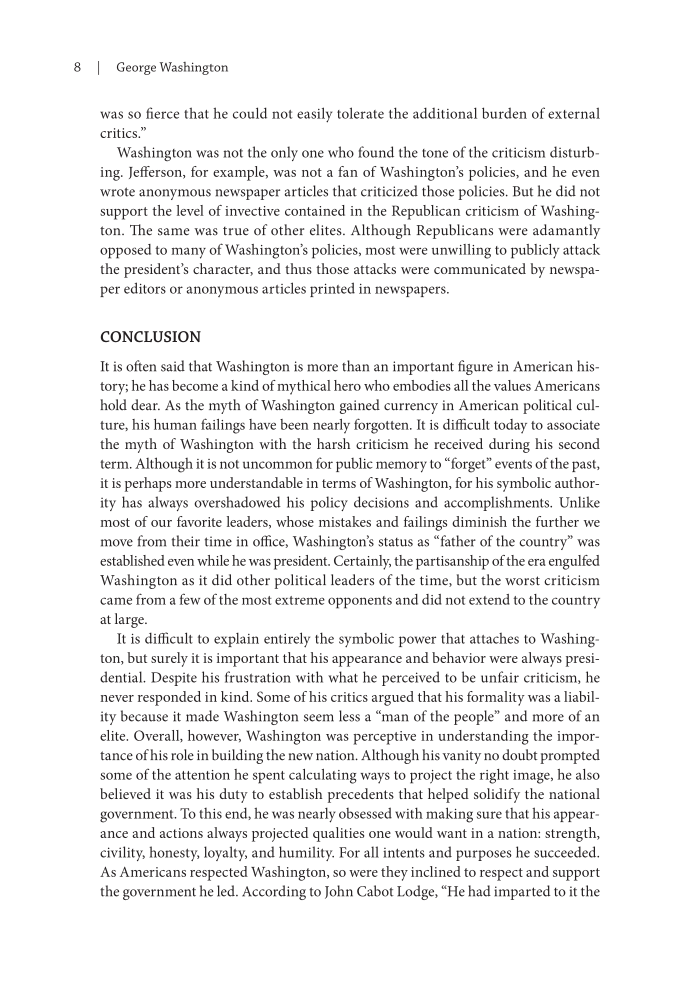8 | George Washington was so fierce that he could not easily tolerate the additional burden of external critics.” Washington was not the only one who found the tone of the criticism disturb- ing. Jefferson, for example, was not a fan of Washington’s policies, and he even wrote anonymous newspaper articles that criticized those policies. But he did not support the level of invective contained in the Republican criticism of Washing- ton. The same was true of other elites. Although Republicans were adamantly opposed to many of Washington’s policies, most were unwilling to publicly attack the president’s character, and thus those attacks were communicated by newspa- per editors or anonymous articles printed in newspapers. CONCLUSION It is often said that Washington is more than an important figure in American his- tory he has become a kind of mythical hero who embodies all the values Americans hold dear. As the myth of Washington gained currency in American political cul- ture, his human failings have been nearly forgotten. It is difficult today to associate the myth of Washington with the harsh criticism he received during his second term. Although it is not uncommon for public memory to “forget” events of the past, it is perhaps more understandable in terms of Washington, for his symbolic author- ity has always overshadowed his policy decisions and accomplishments. Unlike most of our favorite leaders, whose mistakes and failings diminish the further we move from their time in office, Washington’s status as “father of the country” was established even while he was president. Certainly, the partisanship of the era engulfed Washington as it did other political leaders of the time, but the worst criticism came from a few of the most extreme opponents and did not extend to the country at large. It is difficult to explain entirely the symbolic power that attaches to Washing- ton, but surely it is important that his appearance and behavior were always presi- dential. Despite his frustration with what he perceived to be unfair criticism, he never responded in kind. Some of his critics argued that his formality was a liabil- ity because it made Washington seem less a “man of the people” and more of an elite. Overall, however, Washington was perceptive in understanding the impor- tance of his role in building the new nation. Although his vanity no doubt prompted some of the attention he spent calculating ways to project the right image, he also believed it was his duty to establish precedents that helped solidify the national government. To this end, he was nearly obsessed with making sure that his appear- ance and actions always projected qualities one would want in a nation: strength, civility, honesty, loyalty, and humility. For all intents and purposes he succeeded. As Americans respected Washington, so were they inclined to respect and support the government he led. According to John Cabot Lodge, “He had imparted to it the
Document Details My Account Print multiple pages
Print
You have printed 0 times in the last 24 hours.
Your print count will reset on at .
You may print 0 more time(s) before then.
You may print a maximum of 0 pages at a time.



























































































































































































































































































































































































































